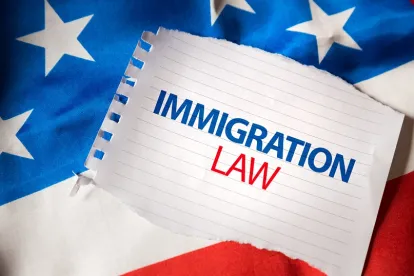On March 3, 2017, U.S. Citizenship and Immigration Services (USCIS) unexpectedly announced that it will temporarily suspend its premium processing service for all H-1B petitions received on or after April 3, 2017. The premium processing program allows a petitioner to receive a decision on its case within 15 calendar days in exchange for payment of an additional government filing fee to USCIS.
As discussed in our recent article, “Mapping the Impact From USCIS’s Surprise Suspension of H-1B Premium Processing,” the potential impact of USCIS’s suspension of H-1B premium processing on H-1B cap-subject employers, employees, and international students is serious. The scope of potential impact also, however, extends to H-1B cap-exempt employers.
Which Employers/Petitions Are Cap-Exempt?
As defined in regulation at 8 CFR 214.2(h)(19)(iii), the following employers and employment arrangements are not subject to the annual limitation on H-1B visas:
- institutions of higher education (colleges, universities, etc.);
- nonprofit entities related to or affiliated with an institution of higher education;
- nonprofit research organizations or governmental research organizations;
- when an employee who will work the majority of his or her time at the worksite of one of the above qualifying institutions, even if employed by a cap-subject employer;
- when an employee who will perform part-time work (as defined by regulations as less than 20 hours per week) for a cap-subject employer and part-time work for a cap-exempt employer.
What Are the Advantages of Being a Cap-Exempt Institution?
There are three primary advantages to classification as a cap-exempt employer:
- There are no limits on the number of H-1B visas available to cap-exempt institutions.
- Cap-exempt institutions can apply for H-1B petitions at any time and indicate desired start dates. Cap-exempt employers can file H-1B petitions at any time for effective dates beginning at any time during the year. In contrast, cap-subject employers must file new H-1B petitions within five business days of April 1 for a start date of October 1, and are much more limited in their ability to onboard employees who are applying for H-1B status for the first time.
- Cap-exempt institutions pay less in government filing fees.
What Is the Impact of the Premium Processing Suspension on New H-1B Petitions for Cap-Exempt Employers?
Many employers, particularly colleges and universities, take advantage of the significant flexibility available to cap-exempt employers when onboarding new faculty or staff with varying start dates throughout the year. Many cap-exempt employers have, in the past, relied on premium processing to ensure timely approval of H-1B petitions, particularly for prospective employees that are in some other nonimmigrant status (such as F-1 students or J-1 exchange visitors), as these employees cannot begin working until their H-1B petitions have been approved. With H-1B processing times running between four and eight months, premium processing was necessary to ensure timely approval. With premium processing not available for “up to 6 months” according to USCIS, cap-exempt institutions may want to plan ahead and seek alternate routes to speed up processing for prospective employees that have not previously held H-1B status.
Perhaps the most important option available to cap-exempt institutions to avoid the potential drawbacks outlined above is to request faster processing based on USCIS-defined “expedite criteria.” USCIS may expedite a petition, at the agency’s discretion, if it meets one of the following strict criteria:
- “Severe financial loss to a company or person;
- Emergency situation;
- Humanitarian reasons;
- Nonprofit organization whose request is in furtherance of the cultural and social interests of the United States;
- Department of Defense or a national interest situation (These particular expedite requests must come from an official U.S. government entity and state that delay will be detrimental to the government.);
- USCIS error; or
- Compelling interest of USCIS.”
In recent practice, expedite requests have been very difficult to obtain. Cap-exempt institutions have historically relied on premium processing to ensure timely adjudication because of the limited success of expedite requests. With the suspension of H-1B premium processing, however, many cap-exempt institutions could arguably qualify for at least one of the above expedite criteria. In appropriate situations, cap-exempt employers may want to strongly consider requesting expedited processing, as no additional government filing fee is required, nor are there downsides to the denial of an expedite request.
Conclusion
Cap-exempt institutions now may want to plan ahead even more carefully when onboarding employees who require a new H-1B petition. The lack of premium processing may delay anticipated start dates. In these scenarios, cap-exempt institutions will likely pursue expedited processing, but the ultimate success of this approach is dependent on USCIS’s discretion.




 />i
/>i

